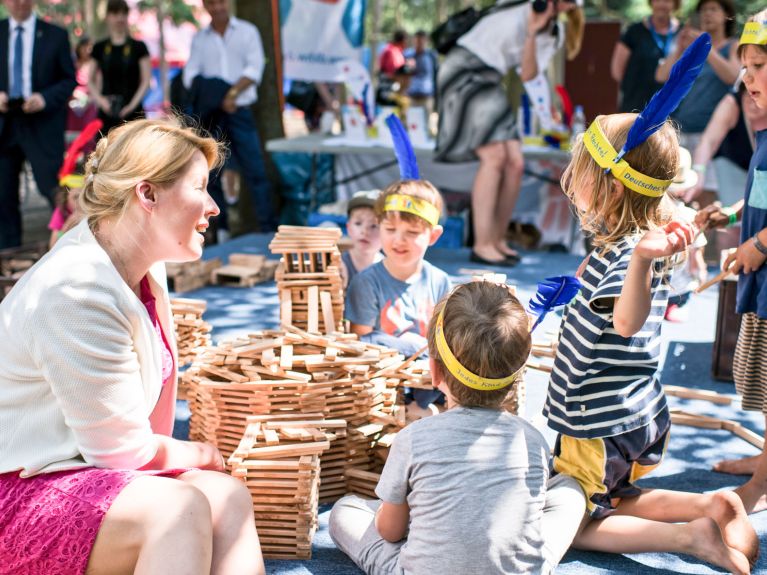Diverse ways of living
There is great scope for personal lifestyles and new family concepts in Germany.

There are many different lifestyles and ways of life in Germany. You can either remain within the mainstream or be outside of it. Alternative concepts for life are accepted as are different sexual orientations. The government does not interfere in such things as whether you are married to your partner or not, whether you live together, or if you want to have children. In all other areas of life people are likewise given the space for self-development.
What is a family? The classic family model still involves a father, a mother, and children. But many other forms of family have developed, too, such as same-sex parent families, patchwork families, bi-national families or single-parent families. Moreover, it is often the case that the father and mother are not married. Every tenth couple with children in Germany has no marriage certificate. And in an increasing number of families, children live alone with a mother or father.
The relationship between parents and children is largely very good. Naturally, there are conflicts, but often parents are like older friends or pals for their children. 40 percent of the youngsters polled in the Shell Youth Study 2015 say: “My relationship with my parents is really good.” Having a good family life is one of the most important values for young people. Indeed, one in three even say the way their parents raised them is a model for how they will educate their own children. For their part many parents understand that encouragement, motivation, and teaching someone to be independent are more effective than being overly authoritarian and imposing bans.
At some point the time comes for kids to leave home. Young women usually manage this earlier than their male counterparts. At age 25 only one in five women still lived with their parents in 2014 while 36 percent of the sons had yet to leave “the nest”.
